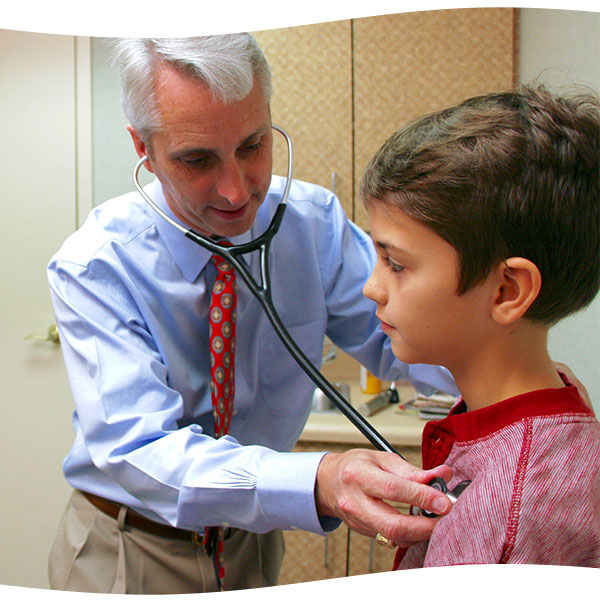We provide asthma treatment for the whole family, and treating young children, including toddlers and infants, is one of our specialties. We are experienced in diagnosing children who are too young to explain or verbalize their discomfort. Early identification of asthma in young children is incredibly important to their health and safety.
Any asthma symptom, no matter how mild, should always be taken seriously. Even mild asthma symptoms in children can become life-threatening. Since young children are unable to verbalize or explain how they feel, it is important for family members to be alert for symptoms.
If your child is having difficulty breathing, seek medical attention immediately.
Some types of asthma are hereditary, so if others in the family have asthma, it is more likely that your child may have asthma too. If others in your family or your child has allergies or eczema, that also increases the chances that your child could have inherited asthma.
Common asthma symptoms in children include:

Common lung function tests used for adults or children six years of age and older which require controlled breathing or forceful exhaling cannot be used to test young children. A careful, physical examination and a detailed consultation with the parents will play an important role in determining if a child has asthma. The doctor may prescribe medication for your child as an additional step to see how it helps the symptoms.
If your child’s asthma is caused by allergies, the doctor may also conduct an allergy test.
Treating asthma in children is not that much different than treating adults. Once we have identified what triggers your child’s asthma symptoms, we begin by explaining how to safeguard against those triggers, and what to do if an asthma attack occurs.
We then prescribe a personalized management plan for your child, which may include medications if necessary. Follow up office visits are an important part of your child’s management plan. It allows us to monitor your child’s health and modify their plan and medications as they grow and change.